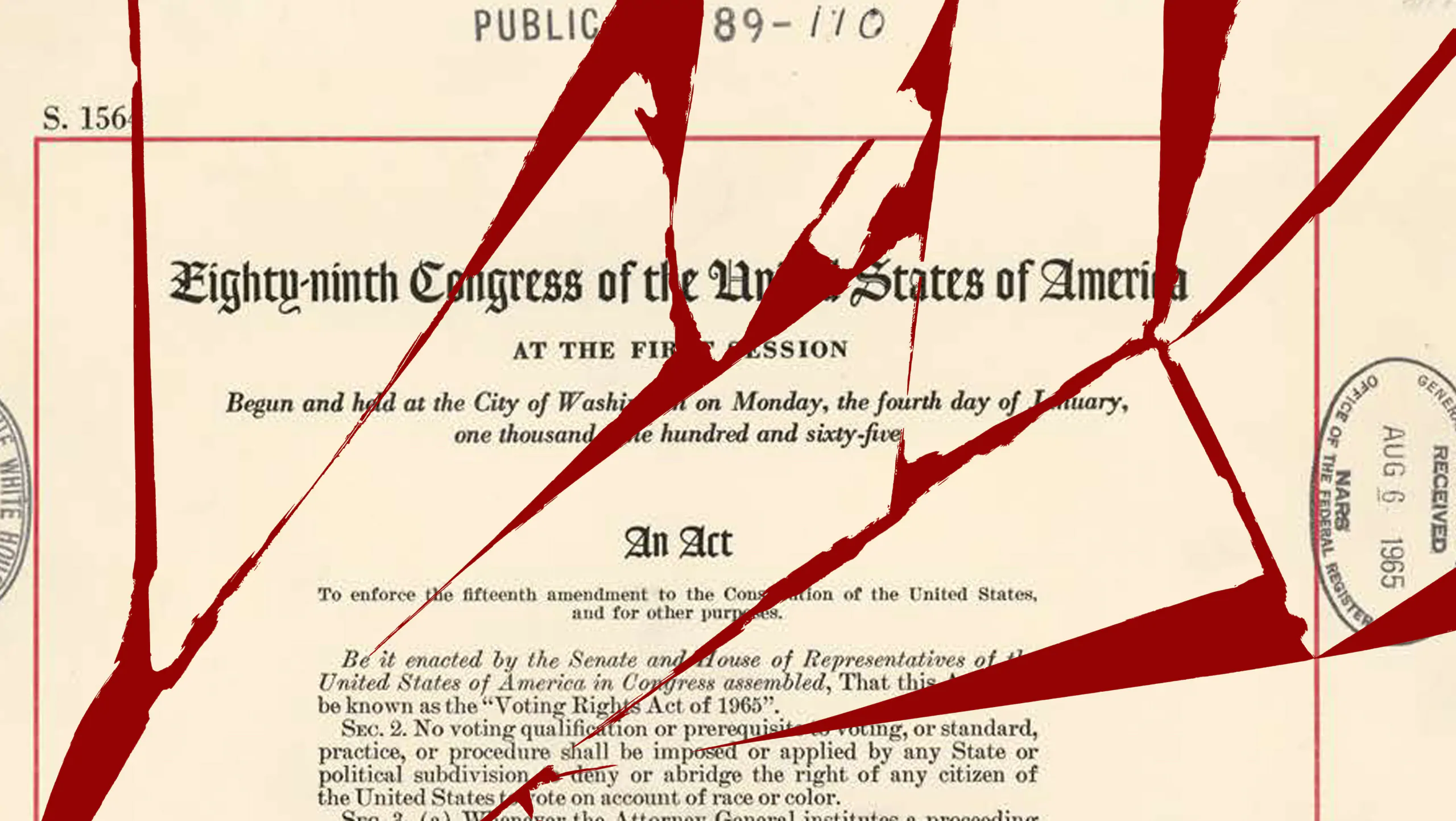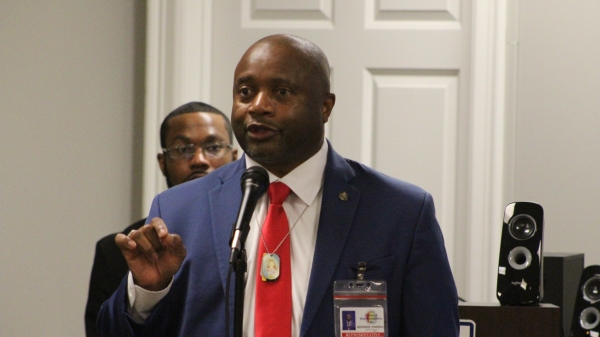The decision by Alabama Republican legislators to seemingly defy a Supreme Court directive to redraw congressional voting maps with a second majority-Black district was part of a larger strategy intended to force the high court to rehear the entire case and strike down Section 2 of the Voting Rights Act altogether, according to numerous sources familiar with the plan.
The sources, who spoke to APR on condition of anonymity, were all either present during discussions of the plan or consulted with those who were. They described a plan concocted by D.C.-based attorneys and championed by Alabama Attorney General Steve Marshall and other ALGOP officials. That plan is rooted in the belief that the Supreme Court never seriously considered the merits of Alabama’s case, particularly in regards to upending Section 2, but instead limited its ruling to only the merits of the stay issued by the lower federal court.
That plan, critics will likely point out, ignores the writings of Chief Justice John Roberts, who directed state lawmakers to redraw its 2021 maps to include two majority-Black congressional districts or “something quite close to it.” Alabama GOP lawmakers’ decision to approve a map with one majority Black district and a second with only 40 percent Black voting age residents would likely fall well short of that directive.
Still, during often tense discussions among state Republican leaders, a majority of lawmakers bought into the idea that the High Court’s ruling was based on the Lower Court’s stay in Allen v. Milligan and not on the full merits of the case, according to insiders who were granted anonymity to speak candidly about internal Republican discussion.
The thinking is that the Supreme Court will grant a full hearing on the merits of Milligan, and in that scenario, Alabama is likely to prevail. This belief is partly based on the Alabama-based case Shelby County v. Holder ruling, where the Court neutralized Section 5 of the Voting Rights Act that required states with a history of racist elections to obtain “preclearance” before enacting new state voting laws.
This defiant approach is credited to an unidentified Washington D.C. lawyer who was hired by either Alabama’s Attorney General or the Alabama Republican Party, or both. According to APR sources, Alabama Attorney General Steve Marshall is the main driver behind the noncompliance strategy, and ALGOP Chairman John Wahl was the conduit to the D.C. attorney. Neither Marshall or Wahl have confirmed their involvement.
In a 5-4 ruling, Chief Justice John Roberts, writing for the majority, said, “The heart of these cases is not about the law as it exists. It is about Alabama’s attempt to remake our §2 jurisprudence anew,” by arguing that a race-neutral benchmark is a necessary political process when deciding what constitutes “equally open” to Black voters. Roberts also wrote, “We find Alabama’s new approach to §2 compelling neither in theory nor in practice. We accordingly decline to recast our §2 case law as Alabama requests.”
In 2013, Roberts held a different opinion in Shelby County, and the current Court is far more conservative than a decade ago.
APR sources said that Republican lawmakers believe their D.C. connections have “intelligence” that Associate Supreme Court Justice Brett Kavanaugh, who voted with the majority in Milligan, is open to rehearing the case on its merits.
It only takes a majority of the Court to agree to hear a case, which in Milligan is likely they presume, because election disputes fall under the Court’s mandatory jurisdiction, which typically means the full Court will hear the matter.
During the special session to redraw the congressional maps, there was a wide gap between the maps the Senate offered and those passed in the House. According to APR insiders, the House was working to pass maps that could possibly pass muster with the federal district while the Senate was determined to enact maps that challenged the Court to set up a trial before the Supreme Court.
Marshall and his team worked close with senators to advance the defiant strategy, according to those with direct knowledge of the matter. He was further aided in his efforts by Republican state Senators Arthur Orr, R-Decatur, and Will Barfoot, R-Montgomery, both attorneys, the sources said.
The sources said that House members initially resisted the Senate’s scheme to ignore the Court’s order but eventually relented, expecting the Court to redraw the maps after negotiation with the upper chamber failed.
According to sources, Marshall was humiliated in Milligan and is willing to gamble on a win at the Supreme Court despite the national embarrassment the state is currently suffering or the unfair treatment of Black voters in the state. According to insiders, Marshall hopes to overturn Section 2 to polish his conservative credentials for a future run for higher office.
Recently Marshall entered into a contract for $108,000 with attorney Jeffrey M. Harris. That contract did not specify a current open case, but Amanda Priest, director of communications for the A.G.’s office, said that Harris is being retained to assist with “redistricting issues.”
Harris is a partner at Consovoy McCarthy in Washington, D.C., which has represented other Republican causes before the Supreme Court.
Insiders who spoke with APR are particularly disturbed by the mention of “intelligence” that Kavanaugh might reverse himself if the Alabama case reaches Court a second time. What is this, so-called “intelligence”? Who provided it and passed it along to the Alabama Legislature Republicans?
It is now clear that Alabama’s Republican majority acted deliberately to trigger a second hearing of the case before the Supreme Court. Republicans in the state Senate, spurred on by Marshall and others, want to break Section 2 of the Voting Rights Act, a long-held goal of many conservatives, including members of the current Supreme Court.
In August, the three-judge panel for the Northern District of Alabama will decide the next course of action on Alabama’s newly drawn maps. If the judges are consistent with their earlier ruling, they will appoint a special master to redraw the state congressional districts. This will cause the state to appeal to the Supreme Court, which was the goal set by some before the special session began.












































